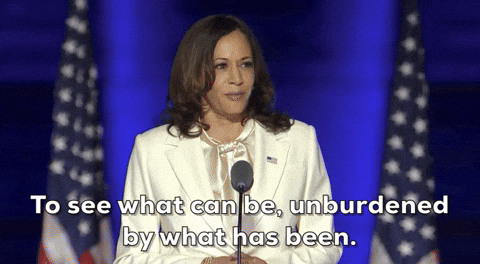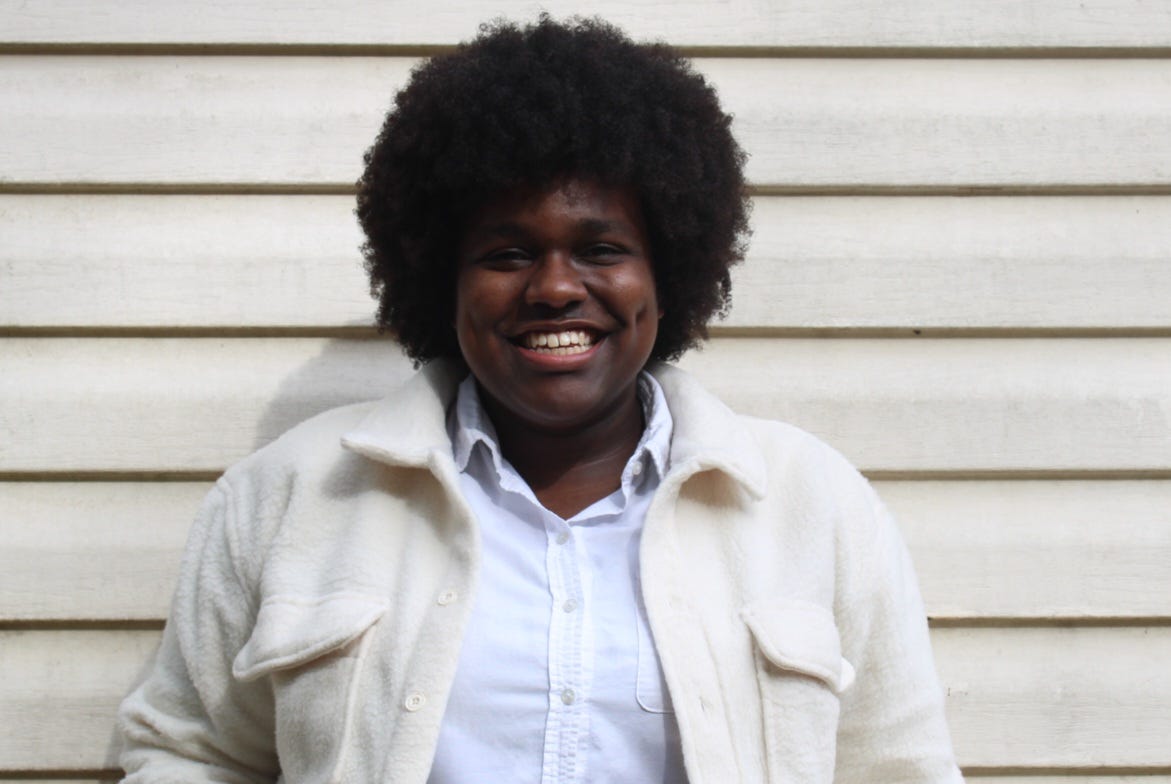I'm A Black Bipolar Woman Learning How To Cope
Have you ever met a Black woman with bipolar disorder
Hey yall,
I am at a loss for words right now. As I’m writing this, I just heard the news that Biden is stepping down and endorsing Kamala Harris to be the next Democratic nominee for President of the United States. I never talk politics in this newsletter, but this is so seismic and fresh I don’t really know how to feel, but here are my unfiltered immediate thoughts:
America is not real.
I’m seething over the news cycle from “leftist” media outlets drowning us in headlines about Biden needing to step down. Welp, they got what they wanted. Now what?
Biden been ancient with his health declining for years now, if they were so concerned, why didn’t they do this like 6 months ago?
Democrats really screwed us over, again.
How the hell America is going to rally around a female presidential nominee when we saw what happened to Hilary?
My friend who moved to Mexico 5 years ago is probably sitting even prettier right now. Which city did she say she lived in again?
Well, Hilary Clinton won the popular vote but lost the race to shenanigans so it is technically possible…
Wait…Kamala is a BLACK woman. SIGH.
She’s a Black woman whose reputation as a cop precedes her.
Wait, wait, wait…Kamala isn’t the official nominee, she’s just endorsed??
So Democrats pulled this madness in the 11th hour without a plan of who they’re going to immediately and officially put in that seat??
I hate it here.
Either way, I don’t care who they put in that blue seat. If it’s Kamala Harris then we need to rally for her and vote!
This Week’s Story
When I hear about bipolar disorder, Black women aren’t typically the people that come to mind when I think about who suffers from the disease. But this week’s essay from Janell Brower really showed me that the people in your friend group who you least expect to be going through it, could be the ones silently suffering the most.
Take care,
Anayo Awuzie
EIC of Carefree Mag
I Love Me, I Love Me Not
by Janell Brower
As a child, I would walk into every room with this teetering feeling in my heart. I’d say it all the time, “I feel like I’m rocking back and forth in my mind, teetering between sanity and insanity.” I didn’t know why. Often, my thoughts revolved around one main belief—something was inherently wrong with me.
This was the cracked lens I saw everything through.
Over time, I became a people-pleaser, thinking that fixing the needs of others would satisfy my own. Yet, my efforts simply made me even more unstable, splitting my mind between several opinions that constantly changed. And the opinions about me were many. Without my choosing, I seemed to be many things that never quite fit into any space. I was caught between too many intersections, which felt like living between two different worlds at the same time.
I always found it interesting how both worlds could carry on together unnoticed by most. How you believe you look strange to outside observers while being completely scared to look others in the eye. How you hope for a bright future in a world that only shapes futures for people who are ‘light-bright’ enough to succeed in the world.
In predominantly white institutions, I was too Black. In Black and brown spaces, I was too dark-skinned and quiet. To men, I wasn’t pretty enough or skinny enough to be a desirable woman. To women, I wasn’t feminine enough to be straight. I was always too much or not enough to be accepted and loved.
Yet still, I didn’t stop trying to love. Though my heart felt as fragile as picking petals off a flower, I believed finding real love was the key to finding stability—to finding safety.
Several years down the line, I discovered there was another thing I was too much of—too mentally unstable. At the age of 24, I was diagnosed with Bipolar Disorder, which also meant that I spent the prior 23 years of my life completely unaware of this fact. It turned out the teeter I felt in my heart was truly found in my mind, and this introduced an entirely new level of instability.
Questions like, ‘Am I uncontrollable?’ spiraled in my mind. I wondered if my teeter was ever going to fade. Before, it was simply tied to my inability to fit into crowds or wear the right clothing. Things that, though aggravatingly unnecessary at times, could be changed. But this? This is ingrained. This mental illness is a chemical imbalance that I can’t simply remove with a pair of heels or a touch of makeup. This tied my instability to a disease I would have for the rest of my life.
This tied my cracked lens forever to my eyes.
However, my new diagnosis did bring pockets of relief. The last 23 years have been difficult. But they weren’t this way because I lacked anything externally. To the outside eye, I was a straight-A student full of potential. I would passionately play the guitar on Sunday mornings and fill people with sweet sensations of love and joy. I was the friend who stayed up late on the phone, shouldering the cries of recent heartbreaks we all saw from a mile away. I cooked and cleaned and never complained, always understood, and never refrained. From the outside, the last 23 years weren’t hard at all. They showed too many reasons why I should’ve been grateful.
Yet, underneath that gratitude I should’ve had, I was cracking under a pressure I couldn’t withstand.
If you had an eye to look inside, you’d see there was a different drive behind my kindness. You’d see how every desire to wipe away my tears came with the desperation to be seen by you. You’d see how each perfect grade was the bar set in place to determine my value. If you were allowed to come over to my house, maybe you’d see something that took me years to realize—my mother was also bipolar. And, while she may have chosen to hide her diagnosis to avoid the scrutinizing eyes of others, her choice partially trapped me in a world that only saw their stares.
How could I avoid them? I was raised in a household where things were only seen in black and white. Upon walking outside, my eyes saw the world through the same hue. I paid attention to the slight changes in body language, for I knew they indicated the possibility of anger or disappointment. I made sure to give more of myself than any other person gave, for I wanted to push against the fear of people withdrawing themselves at any given moment. I deliberately loved people who triggered me, even if I had to rationalize their instability as something they couldn’t help. As something they were only doing because they loved me.
From the inside, the last 23 years were hard for me. That lens was crystal clear. After I was diagnosed, I found relief from years of carrying things I thought were my fault. They weren’t.
Born in Michigan, raised in Philadelphia, Janell Brower is a freelance copywriter who strives to help people who struggle with mental illness find the support they need. For fun, she loves playing jazz guitar, writing out her streams of consciousness, and listening to the stories of those who are willing to share.









Do you have a link to the author's page?